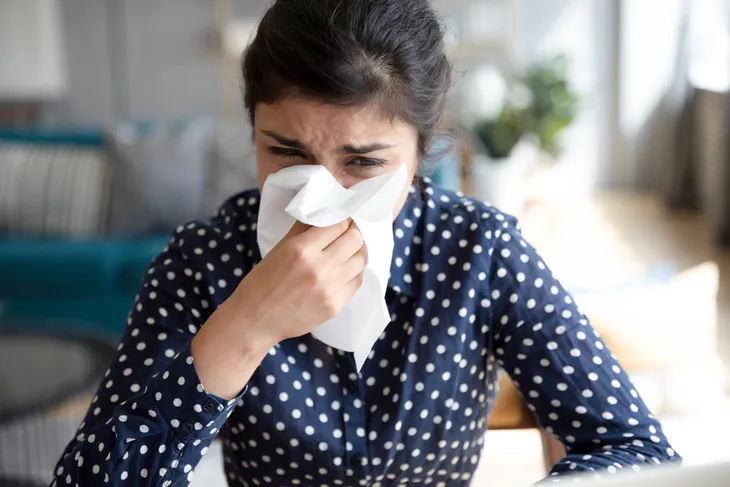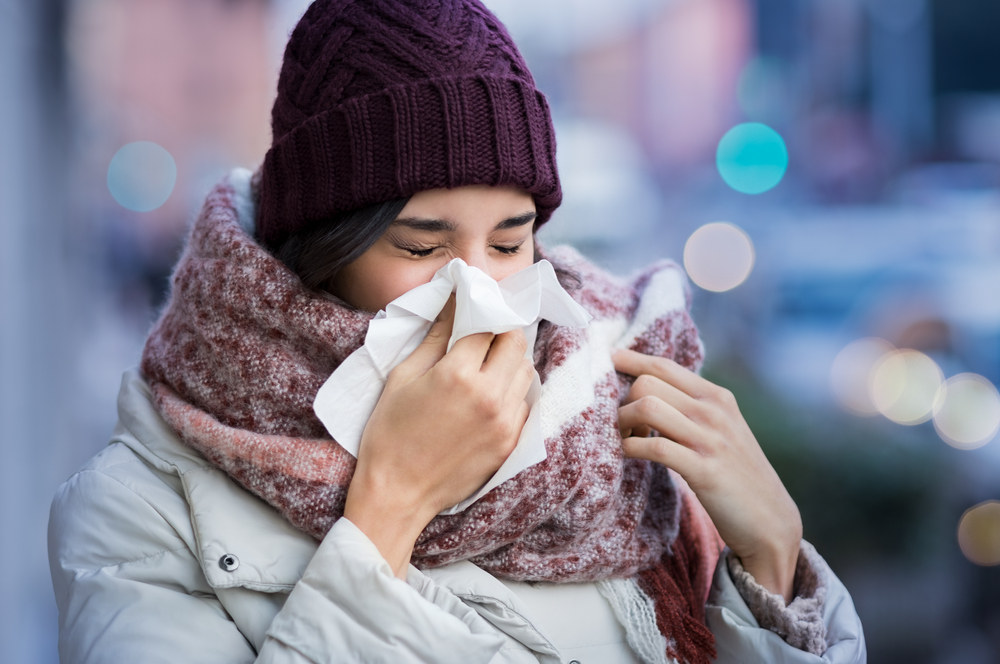Allergies are a common issue for many people. In fact, more than 50 million Americans have allergies of some type every year, making it the sixth leading cause of chronic illness in the U.S. While allergies are more commonly associated with the spring and fall seasons, many people also experience symptoms in the winter – something that may seem puzzling.
To help you better understand and identify if you or someone in your household is suffering, we’re breaking down what winter allergies are, the signs and symptoms, treatment options, and tips for prevention.
What are Winter Allergies?
If you’re only allergic to pollen, then you likely won’t be afflicted. Winter allergies are exasperated during the colder months when the furnace turns on and people are spending more time inside and less outside, which increases exposure. They’re generally indoor allergies found in houses and include:
- Dust Mites: This year-round allergen is one of the most common and tends to worsen allergies right after dusting or sweeping, as dust has just been disturbed.
- Mold: Mold thrives in damp places and when the spores become airborne, they can cause allergy flare ups.
- Pet Dander: Animals that shed, particularly dogs and cats, leave their hair around the house, which can aggravate allergies. While not owning a pet is the easiest solution, if you already have one, try to keep them off your bed and couches.
 Source: Shutterstock
Source: ShutterstockSigns and Symptoms of Winter Allergies
Common signs and symptoms of winter allergies are very similar to allergies experienced in the spring and fall. These include:
- Stuffy or runny nose
- Sneezing
- Coughing
- Itchy or watery eyes
- Itchy ears
- Itchy throat
- Mild fever
- Difficulty breathing
- Rash
 Source: Shutterstock
Source: ShutterstockTreatment Options
If you’re experiencing winter allergies, there are a number of easy treatment options available through your local pharmacy or at your health clinic. Some of the most popular options include:
- Over-The-Counter (OTC) Allergy Medication: The most common treatment for allergies; OTC allergy medication tends to come in tablet or liquid form. These medications are antihistamines, which relieve allergy symptoms when taken at least daily.
- Allergy Shots: Immunotherapy is used for severe, chronic cases and works by exposing a person to small amounts of the allergen to slowly build up a tolerance and lessen symptoms over time. Talk to your doctor if you think this option could work for you.
- Nasal Spray: Prescription steroid nasal spray can help relieve nasal-related symptoms such as a runny or stuffy nose. Flonase and Nasacort are both common brands.
- Nasal Irrigation: Using nasal irrigation, such as a Neti-Pot, can provide relief from congestion and clear out allergens from the nasal passage.
 Source: Shutterstock
Source: ShutterstockPrevention and Tips to Manage Winter Allergies
There are a number of things you can do to prevent winter allergies or lessen their effects. Most of the actions you can take involve improving the state of your home. They include:
- Change Your Furnace Filter Regularly: A furnace filter traps dust and other allergens as air circulates through your home. It helps remove them in the air you’re breathing in everyday and can lessen allergy symptoms.
- Wash Your Bedding Weekly: Frequently washing your bedding in hot water removes dander and dust mites.
- Put Special Covers on Mattress and Pillows: Special cases protect your mattress and pillows against dander and dust, extending their life and preventing the build up of allergens.
- Vacuum Your House Regularly: Cleaning your house with a vacuum with a HEPA filter removes the majority of allergens from your floors.
- Replace Carpeting with Hard Floors: Carpet, especially older carpeting, can harbor a ton of allergens, from dirt and dust, to years of pet dander.
- Watch for Mold and Remove: Keep an eye out for any mold growth around your home, especially in bathrooms and the kitchen. If you don’t see any mold, but are experiencing symptoms, it may be a smart idea to check areas of your home you don’t frequently visit, such as the basement and attic.
 Source: Shutterstock
Source: ShutterstockTalk To Your Doctor
If you are suffering from winter allergies, talk to your doctor to determine what you may be allergic to and review available treatment options. They may also refer you to an allergist who can perform detailed tests to determine exactly what indoor (and potentially outdoor) allergies you suffer from.




